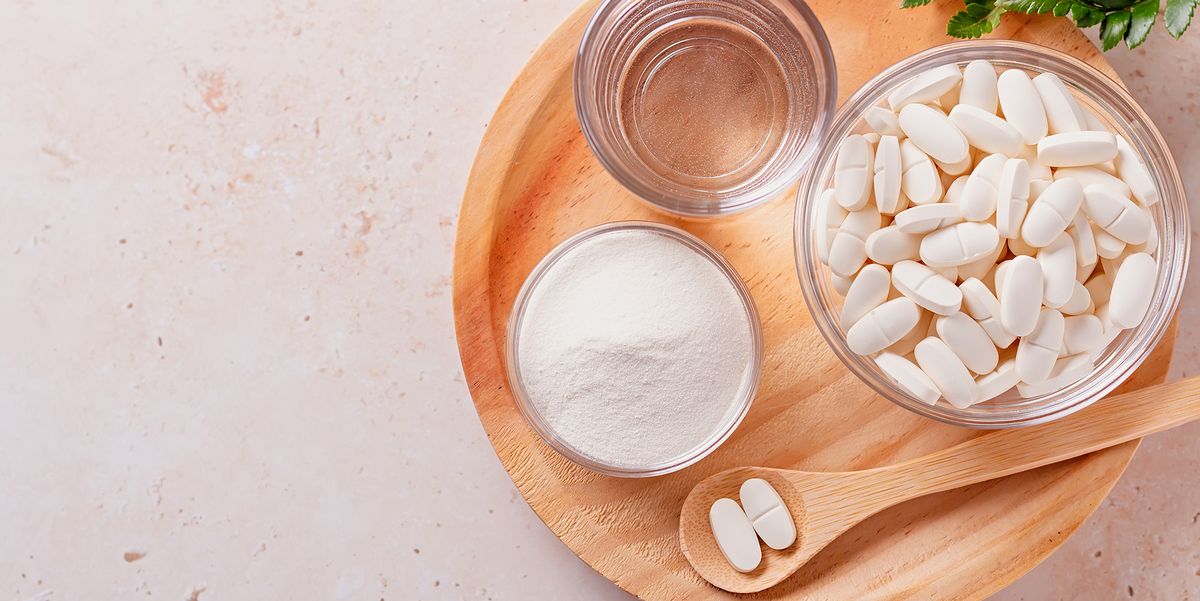
The most abundant protein in the body, collagen is made up of the following amino acids: proline, hydroxyproline and glycine. It provides structure to bones, tendons, ligaments and skin and is essential for maintaining healthy connective tissue.
Running, like all training, puts stress on your body, particularly on connective tissue such as tendons and ligaments. Strength, power and speed are directly linked to having stiff connective tissues. That stiffness depends on two main factors – collagen content and the number of cross-links within it. But while stiff connective tissue benefits performance, it’s also linked to higher rates of injury. So it’s a fine balance.
Can collagen supplements help?
I always advocate food first. Bone broth is often recommended – especially for injury – because of its high collagen content, but it’s an acquired taste. That said, there would be no harm in consuming it for those who eat animal products. Studies have shown the benefits of collagen supplements. (These studies used animal-derived collagen; plant-based options are available, but there are few studies to confirm their efficacy.)
Joint health
Joint health collagen supplements have been shown to support joint health by improving the condition of the cartilage, thus reducing stiffness and joint pain. This is particularly beneficial for people with a high training load, or for older runners. Collagen levels decrease with age, so taking a high-dose supplement can support joint flexibility.
Connective tissue injury
A 2018 study in The International Journal Of Sport Nutrition And Exercise Metabolism showed a professional basketball player recovered well from a knee injury by exercising for 10 minutes, three times a day with six-hour intervals. It also suggested that the addition of gelatine (which has a high concentration of collagen) taken with vitamin C 30 to 60 minutes before exercise enhanced recovery. A 2021 study in the same journal found the combination of collagen with vitamin C and an appropriate exercise rehabilitation programme could support and boost recovery from an anterior cruciate ligament knee injury.
Bone health
Collagen supplements have been associated with stimulating bone-cell production, increasing bone mineral density and reducing fracture risk in postmenopausal women.
Optimal bone health depends on factors including sufficient energy availability; good levels of the hormones oestrogen (in females) and testosterone (in males), calcium and vitamins D and K; and the inclusion of weight-bearing exercise.
Postmenopausal women with declining oestrogen levels are at increased risk of reduced bone health and potential fractures. Hormone replacement therapy can mitigate some risk, but taking a collagen supplement over a 12-month period has been shown to increase bone density significantly.
How much and when?
There’s enough evidence to endorse collagen supplementation. In my own practice, there are times when I advise it; for example, if a runner or athlete presents with a connectivet issue or bone stress-related injury.
The recommended protocol is 15g to 25g of gelatine or hydrolysed collagen with 50mg vitamin C about 40 to 60 minutes before you start training or rehab work.
Once an injury has had the all-clear from a physio, the following process can aid recovery: skipping or similar plyometric-based work (once confident the tendon can cope with load) for 10 to 15 minutes, three times a day, with six hours between sessions, taking 15g of collagen 30 to 60 minutes prior to each bout of exercise.
For postmenopausal women, I’d usually recommend 5g in the morning, 30 minutes before any activity, and 5g before bed.
Renee McGregor is a leading sports dietitian with over 20 years’ experience. Find out more at reneemcgregor.com




